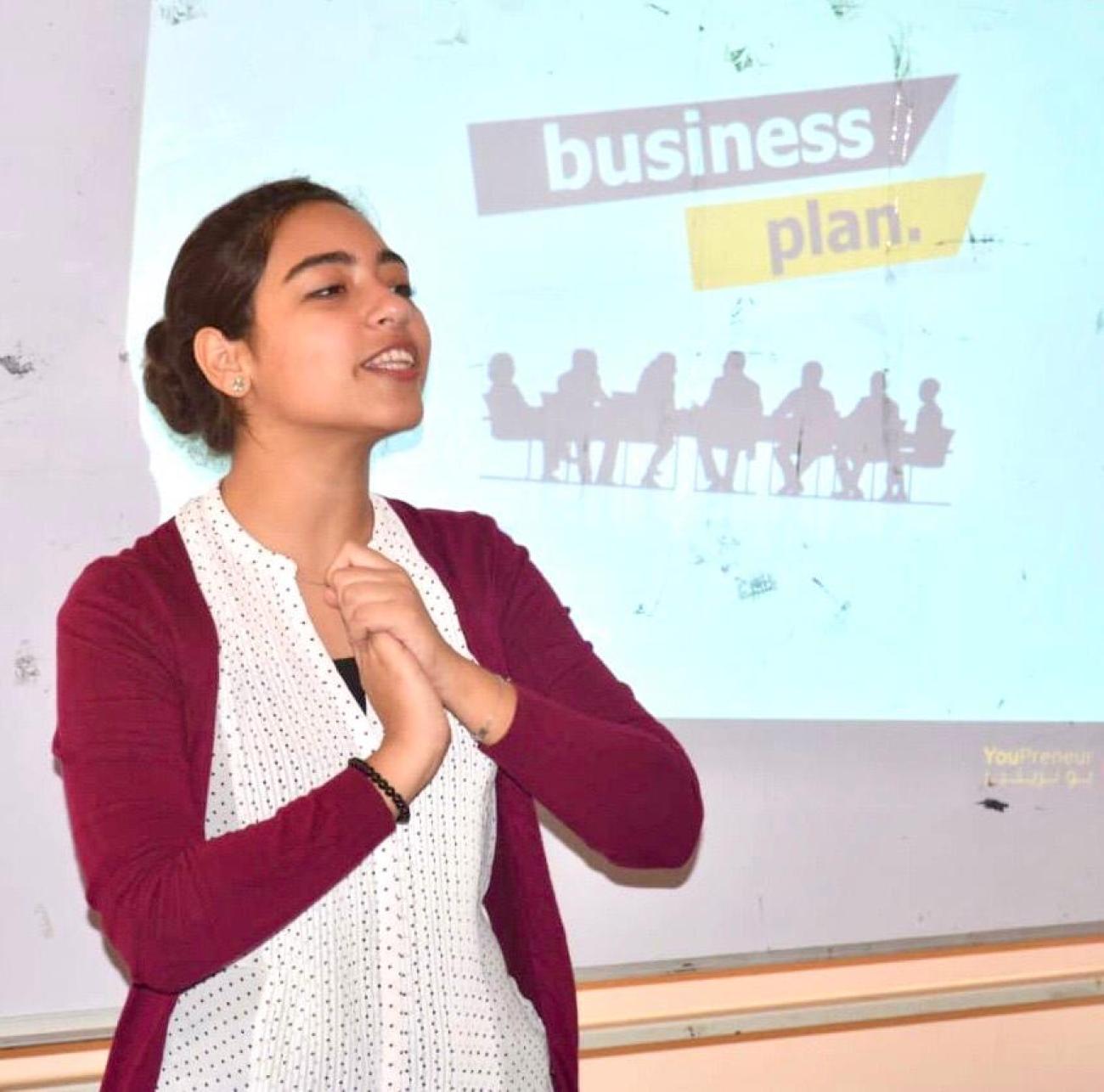Amid the COVID-19 crisis, people around the world were bound by varying levels of quarantine and lockdowns, which have inevitably shuttered a lot of businesses and has led to loss of income, and Egypt was no exception.
But as the pandemic has posed unprecedented challenges, thinking outside the box and developing unique ideas to help affected communities – young entrepreneurs and new business start-ups on top of them - was a necessity. That’s what Esmat Osama, a 24-year-old young woman from Egypt, thought. And as someone with a background in communications, harnessing the power of online platforms and digital media was the answer.
“I feel an immense pleasure when seeing ideas brought to life, I am very glad that a participant in one of my sessions is now developing an online application that provides home made food for expatriates, through which housewives can register, list their signature dishes and generate income, another participant has also opened a ballet academy for children and we are still monitoring his work, providing guidance and advice whenever needed ”, says Esmat who is currently working as a field assistant at the UN Resident Coordinator office in Egypt on a project based on entrepreneurship.
Esmat achieved one of her dream missions by training more than 1,000 young people on how to use digital platforms to promote their own businesses. She has provided entrepreneurship sessions on how to make a business plan, build business model canvas in addition to generating new business ideas amid the pandemic that are not only innovative but also sustainable.
When the pandemic hit, Esmat and her colleagues immediately developed the content and started the sessions, however they faced the challenge of actively interacting with the participants; either due to poor internet connectivity especially in rural areas or reduced level of engagement due to the lack of face to face communication. In that sense, Esmat advised her team that more diverse techniques were needed and hence developed different online activities like quizzes and showcasing interesting short videos to grab the participants’ attention.
“To make sure participants don’t lose passion or track of their own projects, we have to follow up on the progress for a period that ranges from three to six months after receiving the training”, Esmat recalls.
The online sessions are part of the E-Youth programme funded by EBI - The Egyptian Banking Institute and Y-PEER programme supported by UNFPA.
Esmat is also a Y-PEER trainer who conducts sessions on reproductive health and gender-based violence and teaches youth how to use social media to create public awareness on the shadow pandemic, focusing on the increase in domestic violence amid the COVID-19 health crisis.




